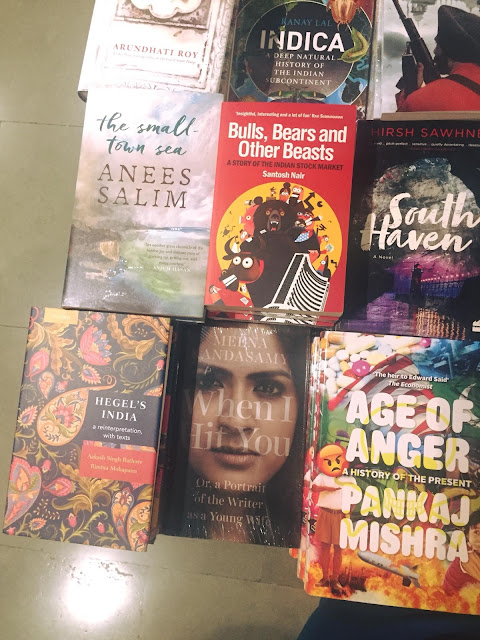Bombay called me back in November this year! This happy, sleepless city, not shy about its love.
During the weekend at Mumbai LitFest 2017 - Tata Literature Live! Hegel’s India was caught lazing among 'Award-Winning Books' at Landmark at the National Centre for the Performing Arts (NCPA), Nariman Point!
Limelight and citylights. Bridges and dreams. Sea and sky. Flight and height. Turns and curves. Taxis and walks. Sleep and wake. Slow and fast. Hues and night.








